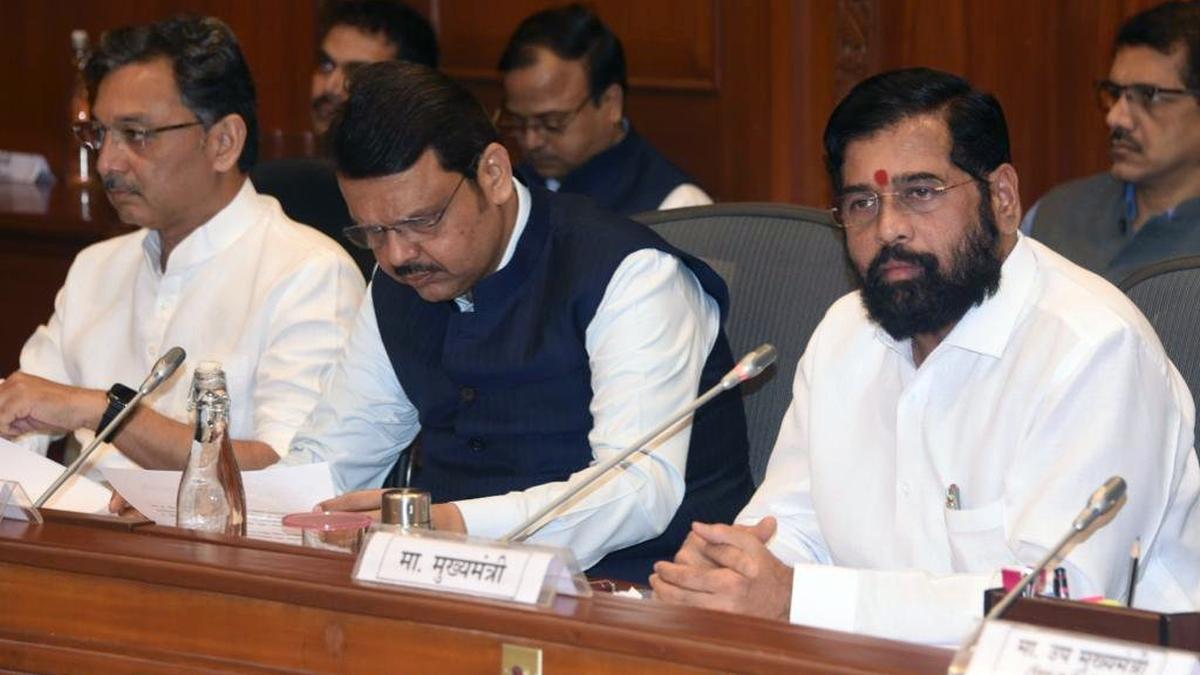
As pro-Maratha quota activist refuses to relent, Shinde holds all-party meet
The Hindu
Eknath Shinde held an all-party meeting late evening in Mumbai to break the impasse under the shadow of intensifying tensions between the Maratha and OBC communities across Maharashtra
Even as pro-Maratha quota activist Manoj Jarange Patil refused to budge from his indefinite hunger strike, Maharashtra Chief Minister Eknath Shinde on Monday made it clear the State government would not take a hasty decision on the issue of Maratha reservation.
While Mr. Patil, whose indefinite hunger strike entered its fourteenth day, continued to insist that the government must issue Other Backward Castes certificates for all Marathas so that the community could avail benefits presently enjoyed by the OBCs community.
Mr. Shinde held an all-party meeting late evening in Mumbai to break the impasse under the shadow of intensifying tensions between the Maratha and OBC communities across Maharashtra.
“The State government wants to give the Maratha community a reservation that will be foolproof and one which will pass legal muster. We will not take any decision in haste. The decision cannot reduce the benefits under reservation of other classes. The State does not want to deceive any community,” Mr. Shinde said, adding that the priority would be to get quotas for the Maratha community in education and jobs.
He said the government needed to establish that the Maratha community was socially and educationally backward and also assure other communities that their quotas would remain unaffected.
Underscoring that the demand for a Maratha quota was a social issue and not a political one, Mr. Shinde appealed to all Opposition parties ahead of the meeting to avoid politicising the issue.
Besides ruling government leaders, representatives of the opposition MVA coalition – the Uddhav Thackeray-led Shiv Sena (UBT), the Indian National Congress and the Sharad Pawar-led Nationalist Congress Party faction – attended the meeting.

“Writing, in general, is a very solitary process,” says Yauvanika Chopra, Associate Director at The New India Foundation (NIF), which, earlier this year, announced the 12th edition of its NIF Book Fellowships for research and scholarship about Indian history after Independence. While authors, in general, are built for it, it can still get very lonely, says Chopra, pointing out that the fellowship’s community support is as valuable as the monetary benefits it offers. “There is a solid community of NIF fellows, trustees, language experts, jury members, all of whom are incredibly competent,” she says. “They really help make authors feel supported from manuscript to publication, so you never feel like you’re struggling through isolation.”

Several principals of government and private schools in Delhi on Tuesday said the Directorate of Education (DoE) circular from a day earlier, directing schools to conduct classes in ‘hybrid’ mode, had caused confusion regarding day-to-day operations as they did not know how many students would return to school from Wednesday and how would teachers instruct in two modes — online and in person — at once. The DoE circular on Monday had also stated that the option to “exercise online mode of education, wherever available, shall vest with the students and their guardians”. Several schoolteachers also expressed confusion regarding the DoE order. A government schoolteacher said he was unsure of how to cope with the resumption of physical classes, given that the order directing government offices to ensure that 50% of the employees work from home is still in place. On Monday, the Commission for Air Quality Management in the National Capital Region and Adjoining Areas (CAQM) had, on the orders of the Supreme Court, directed schools in Delhi-NCR to shift classes to the hybrid mode, following which the DoE had issued the circular. The court had urged the Centre’s pollution watchdog to consider restarting physical classes due to many students missing out on the mid-day meals and lacking the necessary means to attend classes online. The CAQM had, on November 20, asked schools in Delhi-NCR to shift to the online mode of teaching.









